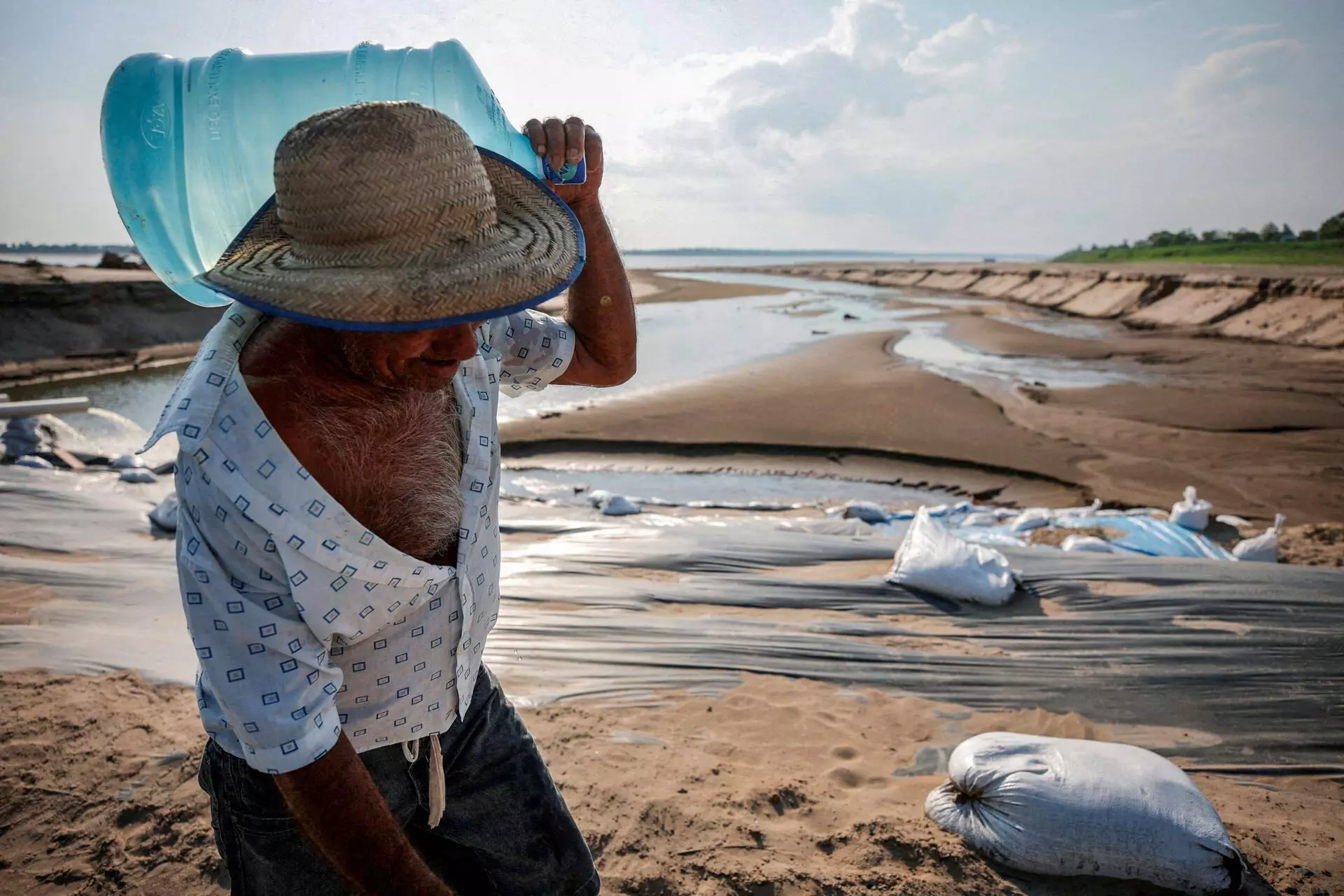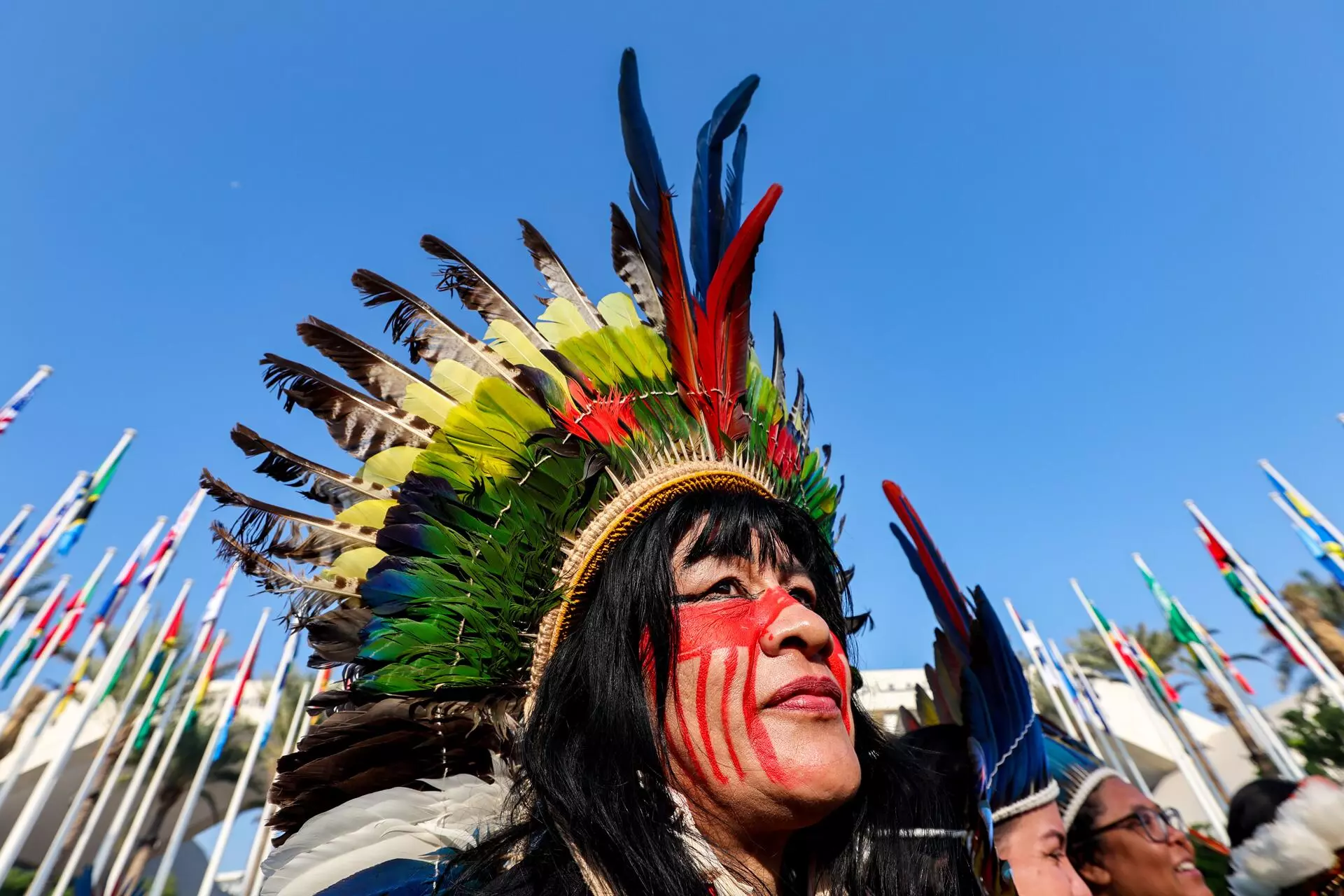The biggest-ever UN climate summit is well underway in Dubai with eighty thousand participants discussing hundreds of agenda items to avert the climate crisis, but ultimately there is only one goal that matters: reducing carbon emissions as quickly as possible by phasing out fossil fuels and eradicating deforestation.
By comparison, everything else is hot air. Delegates can talk all they want about green technology, net zero pledges, compensation payments, scientific studies and other well-intentioned initiatives, but none of that will be effective unless the world halts the build up of carbon dioxide and other planet-heating gases in the atmosphere. That existential challenge, upon which all life on Earth depends, can only be achieved by phasing out coal, oil and gas and restoring the health of the world’s climate infrastructure: the forests, oceans, wetlands and other centres of natural vitality.
If anyone was still in any doubt about the urgency of the climate crisis, this horrendously destructive year has surely made them realise we cannot wait a second longer: 2023 is already confirmed as the hottest year on record. July was the warmest month in more than 120,000 years. This has brought devastating drought to the Amazon, floods to southern Brazil, heatwaves to the Andean mountains, fires to Canada and death and destruction across many parts of the planet. This is just the start. If emissions from fossil fuels and forests continue to increase, then temperatures will continue to rise for decades. We will look back on 2023 as one of the coolest years of our lives. Soon, it won’t just be dolphins and fish that suffer mass mortalities, it will be people. “We are terrified,” a group of 1,447 scientists said in an open letter released at Cop28. “If we are to create a liveable future, climate action must move from being something that others do to something that we all do.”

Devastating drought: confronting the impacts of the climate emergency, a man carries a water jug on a dry river bed in Amazonas state. Photo: Bruno Kelly/Reuters
Sumaúma was formed as a response to this crisis. We recognise that journalism-as-usual is not enough. As regular readers will know, we are based in the Amazon rainforest, which means our perspective is from a center of life, rather than the usual urban centers of money and power. We aim to amplify forest voices and critique the false solutions offered by the old industries who are holding back change and pushing the world ever closer to the abyss.
We aim to cover Cop28 in this spirit through collaborations with other organizations. Our reporting team in Dubai includes indigenous and riverine podcaster Maickson Serrão, and veteran reporter Claudia Antunes. We have also teamed up with youth activists from Engajamundo, who will provide videos and other material from the perspective of a generation whose future is most at risk from climate collapse.
The first week of Cop28 shows the desperate need for a new perspective. The process has been captured by the very people who profit most from increasing carbon emissions. The president of this climate conference is Sultan Al Jaber, who is the CEO of the biggest oil and gas company in the United Arab Emirates. As many climate campaigners have joked, this is like putting a fox in charge of a henhouse or asking Dracula to run a bloodbank. But it is not funny when the man in charge of addressing the most difficult and important challenge in human history goes on record to deny that eradicating fossil fuels is the only way to limit warming to 1.5 degrees Celsius or that a life without oil would send humanity back into caves. These comments, which have been thoroughly rebutted by scientists, reveal the true face of the fossil fuel industry, which has been holding up progress for more than three decades.
All of which makes Brazil’s decision to align itself more closely with the world’s biggest oil cartel Opec, more disappointing. Announced at the start of the climate summit, the timing of this move could not have been more of a kick in the teeth to international efforts to tackle global heating. It is brutally pragmatic. Brazil aims to expand oil production in defiance of advice from the International Energy Agency that 1.5C is impossible if countries open new fields. The day after Cop28 finishes, Brazil will hold an auction of dozens of new oil development blocs. All of these steps will mean more drought, more suffering, more death in the years to come.
What is Brazilian President Luiz Inacio Lula da Silva thinking? He has built a reputation as a progressive democrat who champions social equality, yet OPEC is dominated by autocrats who rule some of the world’s most unequal countries. Lula said he will use the opportunity to persuade them to reduce fossil fuels, but this seems extremely naive. He would be more convincing if he admitted that many countries are hypocrites that pump more oil than is compatible with a 1.5C target. Among the worst are the United States, the United Kingdom, Russia and China. But this too is a kind of madness. All of these countries are using each other as an excuse to do nothing. Desperate not to lose competitive advantages, they look fearfully at one another and completely lose sight of the far greater shared threat of climate collapse.

Contradictions: Brazilian President Lula, who aligned himself with OPEC during COP28, and climate conference president Sultan Al-Jaber, who is also CEO of the UAE’s largest oil and gas company. Photos: Evaristo Sa & Karim Sahib/AFP
It is a force of habit from the 20th century. A union leader who grew up in industrial São Paulo, Lula is from a generation of left-wing idealists who cut their political teeth fighting for better material conditions for the working classes. It was easier to do that by drilling for more oil than fighting for genuine equality. But now fossil fuels are widening the gap between rich and poor, making billions for the shareholders of petroleum companies while floods, drought and fire drive the poor into ever greater misery. Many in the younger generation of leftist activists realise this, but Lula seems to be stuck in the past when it comes to oil and carbon-intensive infrastructure projects. His weak political position – which has left him somewhat hostage to a hostile Congress – does not help.
This is a shame as Lula could be the climate leader that the world is crying out for. He is in a better position than most to assume this role. Brazil is an ecological superpower. Lula’s government has made impressive strides in reducing deforestation (which accounts for half of Brazil’s emissions), setting ambitious climate targets, demarcating indigenous lands and putting more indigenous leaders in positions of power. He is right to propose a new fund –announced by environment minister Marina Silva– to reward countries that protect and expand their forests, and to provide alternative forms of income so that forest dwellers will be less inclined to take up illegal logging, mining, land grabbing and other destructive activities. It is encouraging too that his government has plans to boost renewable energy and clean transport. But Lula’s claim to “lead by example” at Cop28 was undermined by his stance on oil.
It is not too late to change. Brazil will host Cop30 in Belem in 2025. Lula will be in the most powerful position of his life at that meeting. It is a huge responsibility. Coming just ahead of what could be a re-election year for him, the question is whether he will stay with his 20th century petroleum instincts and allies, or take a genuine leadership role by making the first climate summit in the Amazon rainforest a turning point by putting nature at the center and fossil fuels at the periphery. Today that may seem a distant prospect but two years is a long time in politics, and with climate and El Nino dangers growing rapidly, the definition of what is realistic and pragmatic will not be the same. Watch this space. Sumaúma will be following closely.
Our coverage in Dubai is in partnership with Global Witness (@global_witness), an international NGO that has been investigating, exposing, and campaigning against environmental and human rights abuses around the world since 1993
Proofreader (Portuguese): Valquíria Della Pozza
Spanish translation: Meritxell Almarza
Portuguese translation: Denise Bobadilha
Photo Editor: Lela Beltrão
Editorial workflow, copy editing and layout: Viviane Zandonadi (with Érica Saboya)
Editor in chief: Talita Bedinelli
Director: Eliane Brum

Indigenous people from Brazil, in Dubai: the COP28 host is among countries that profit most from the fossil fuels that are destroying forests, their peoples, and life on the planet. Photo: Mahmoud Khaled/COP28





